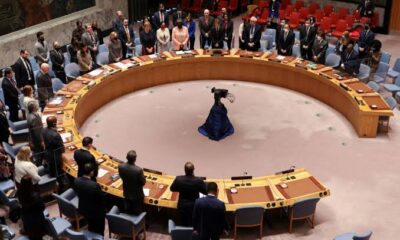Standard Chartered Bank said it has decided to end its operations in seven countries in the Middle East and Africa. According to the Group, the decision is “as set out in its full-year 2021 results presentation to accelerate its strategy, deliver efficiencies, reduce complexity and drive scale.”
The decision was made public in a statement africanewswatch.com retrieved on the company’s website.
“Today the Group announces a set of actions to redirect resources within its Africa and the Middle East (“AME”) region to those areas where it can have the greatest scale and growth potential, in order to better support its clients.” The statement reads.
The decision is however subject to regulatory approval as the Group now intends to exit onshore operations in seven markets in AME. “The seven markets where there will be a full exit of operations are Angola, Cameroon, Gambia, Jordan, Lebanon, Sierra Leone, and Zimbabwe.”
Standard Chartered also reviewed its position in two other African countries. “In Tanzania and Cote d’Ivoire, the Consumer, Private and Business Banking businesses will be exited and the focus will turn solely to CCIB.”
The exit decision is a course for worry, particularly for African countries, many of which largely depends on foreign investment to drive their economy. Exit or lack of foreign investment are developments that threaten fragile economies like Africa. Slamreportsafrica.com reported on Thursday that Ride-hailing company, Uber, has suspended its services in Tanzania as a result of regulations that are not business-friendly which has made its operation in the East African country.
Also recall that Nigeria’s official data source, for one of Africa’s biggest economies earlier this month, released data (Pdf), which indicated that 24 out of 36 states of the Nigerian Federation got no Foreign Direct Investment (FDI) in the year 2021.
As Standard Chartered Group CEO, Bill Winters, said, the group as with other profitably structured companies “focuses on the most significant opportunities for growth while also simplifying business”, African countries most beyond their leaders holidaying across the world in the guise of looking for foreign investors, rather position their economies for growth opportunities for potential investors.

 Politics2 days ago
Politics2 days ago
 Metro2 days ago
Metro2 days ago
 Metro19 hours ago
Metro19 hours ago
 Metro2 days ago
Metro2 days ago































